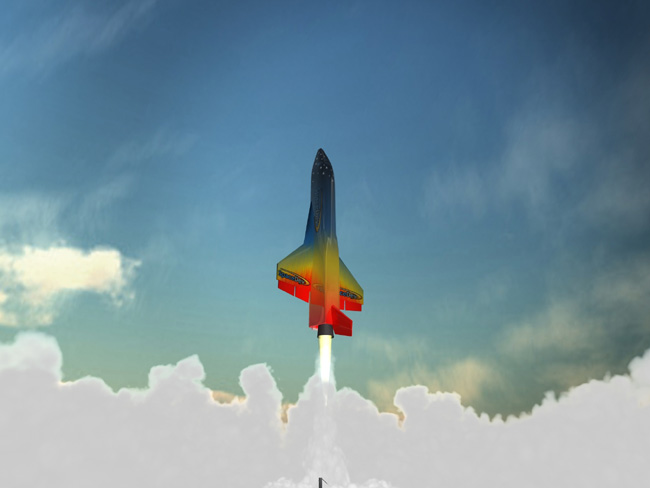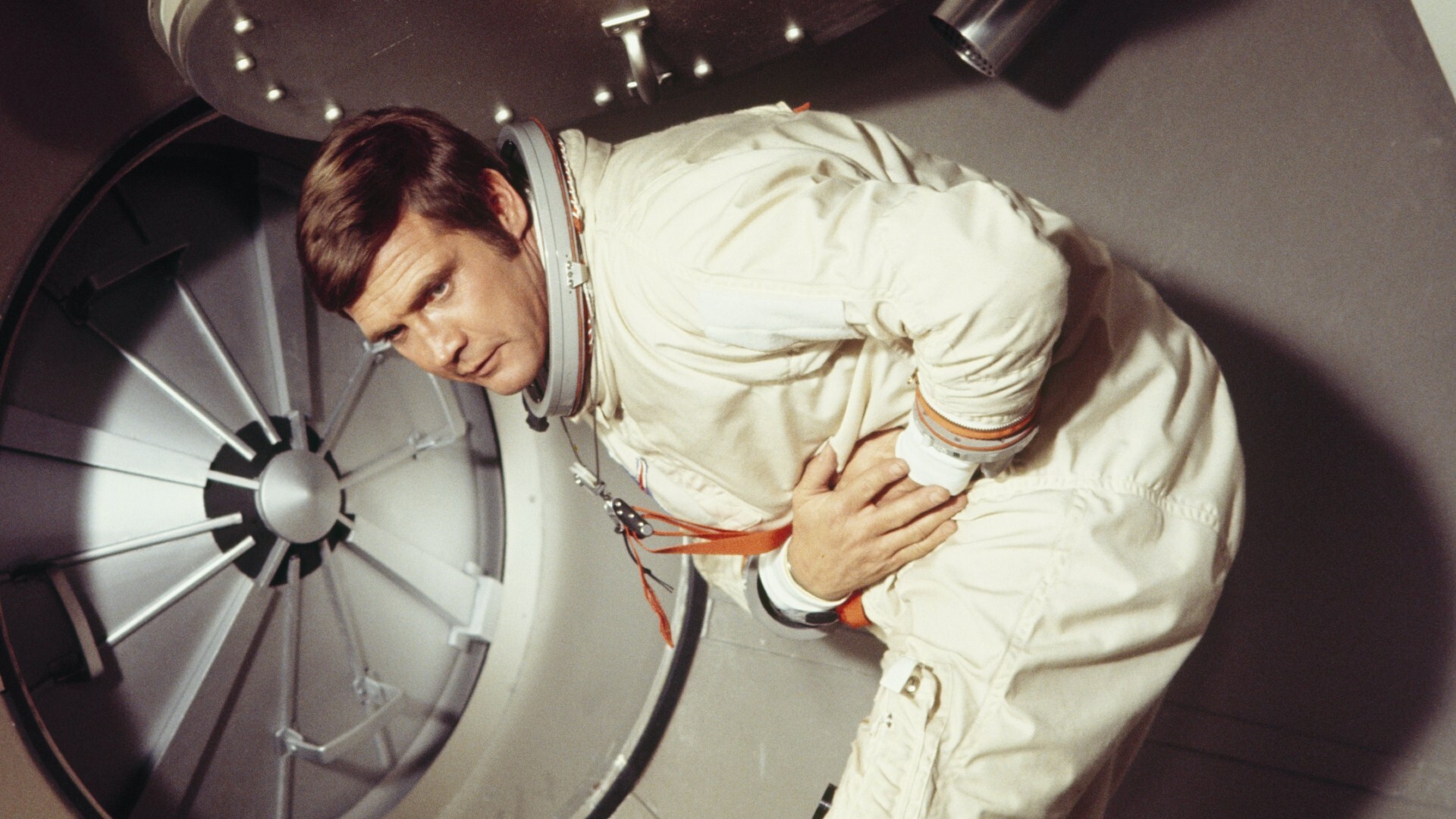SpaceDev to Build Piloted Spaceship

Breaking space news, the latest updates on rocket launches, skywatching events and more!
You are now subscribed
Your newsletter sign-up was successful
Want to add more newsletters?

Delivered daily
Daily Newsletter
Breaking space news, the latest updates on rocket launches, skywatching events and more!

Once a month
Watch This Space
Sign up to our monthly entertainment newsletter to keep up with all our coverage of the latest sci-fi and space movies, tv shows, games and books.

Once a week
Night Sky This Week
Discover this week's must-see night sky events, moon phases, and stunning astrophotos. Sign up for our skywatching newsletter and explore the universe with us!

Twice a month
Strange New Words
Space.com's Sci-Fi Reader's Club. Read a sci-fi short story every month and join a virtual community of fellow science fiction fans!
The aerospace firm SpaceDev cast its hat into the ring of private human spaceflight today, announcing its plans to build a reuseable spacecraft that may one day carry passengers into orbit.
Based in Poway, California, SpaceDev is designing a piloted sub-orbital spacecraft that could eventually be scaled up for orbital flights. The effort springs from a partnership between SpaceDev and NASA's Ames Research Center in Mountain View, California to explore hybrid propulsion-based hypersonic testbeds for routine human spaceflight.
"We have tried to make it clear that SpaceDev does have plans of our own in terms of human spaceflight, both orbital and suborbital," said Jim Benson, the firm's founding chairman and CEO, in a telephone interview.
Benson said the SpaceDev Dream Chaser, as the vehicle is known, could make its maiden flight by 2008 if it is fully funded. The project is currently a partially funded effort, he added.
The spacecraft is expected to carry at least three humans, but possibly more, to an altitude of 100 miles (160 kilometers) using a hybrid rocket engine under a vertical launch profile.
"I am delighted that we will be working with SpaceDev to help meet the goals of the vision for space exploration," said NASA Ames director G. Scott Hubbard in a statement. "Near-term, low-cost, crewed and uncrewed routine space access is a key for realizing the nation's exploration vision."
SpaceDev is currently looking into a number of X-plane designs pioneered by NASA engineers, though the agency's X-34 space plane concept shows promise, Benson said. NASA's X-34 program, shut down in 2001, was a project to develop a reuseable, unmanned suborbital spacecraft.
Breaking space news, the latest updates on rocket launches, skywatching events and more!
The company envisions three primary markets for their spacecraft, which include commercial space transportation consumers, civil agencies such as NASA and the military.
"The time is right for space, both in general and for the public," Benson said, adding that he has been waiting 50 years for commercial spaceflight to become a reality and made it a target when he founded SpaceDev in 1997. "There are a lot of people who have been waiting since their childhood for space to really take off."
A track record in space
SpaceDev is no stranger to private spaceflight enterprises, having provided crucial components and refueling services for the hybrid rocket engine used by SpaceShipOne, an entry in the international Ansari X Prize competition. The firm also built the small CHIPsat satellite for researchers at the University of California at Berkeley.
SpaceDev's hybrid propulsion technology uses solid rubber and liquid nitrous oxide (also known as laughing gas) and powers its SpaceDev Streaker family of expendable launch vehicles. The Streaker's booster stage, which generates about 100,000 pounds of thrust, will also be used to launch Dream Chaser.
"It's probably going to take three versions to get an orbital vehicle," Benson said, adding that an intermediate vehicle would follow the initial spacecraft, which could then lead to an orbital ship. "We're going to take this one step at a time."

Tariq is the award-winning Editor-in-Chief of Space.com and joined the team in 2001. He covers human spaceflight, as well as skywatching and entertainment. He became Space.com's Editor-in-Chief in 2019. Before joining Space.com, Tariq was a staff reporter for The Los Angeles Times covering education and city beats in La Habra, Fullerton and Huntington Beach. He's a recipient of the 2022 Harry Kolcum Award for excellence in space reporting and the 2025 Space Pioneer Award from the National Space Society. He is an Eagle Scout and Space Camp alum with journalism degrees from the USC and NYU. You can find Tariq at Space.com and as the co-host to the This Week In Space podcast on the TWiT network. To see his latest project, you can follow Tariq on Twitter @tariqjmalik.
